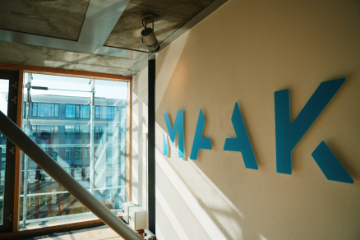
The incorporation of a Dutch BV (Besloten Vennootschap) is a favored route for entrepreneurs looking to establish a business in the Netherlands due to its robust legal structure and distinct tax benefits. The process begins with a KVK registration (Chamber of Commerce), where the company’s details are filed and made part of the Dutch company register. Key documents required include the Articles of Association and confirmation of share capital requirements, which dictate the minimum investment needed to set up the BV. This process ensures that the legal compliance and statutory requirements are thoroughly met, laying a strong foundation for the company.
The role of managing directors and BV shareholders is crucial in the corporate governance of a Dutch BV. Shareholders are responsible for appointing directors and have significant influence over business decisions, as outlined in the company bylaws. The resident director must ensure that the company adheres to all applicable laws, including the preparation of annual financial statements and conducting an annual return BV. This rigorous governance structure supports transparent and efficient management, reinforcing the BV’s reputation as a reliable business entity in the Netherlands.
For entrepreneurs and investors, the Netherlands business setup offers significant advantages such as access to a well-regulated market and potential for substantial growth. The Dutch corporate taxes system is also favorable, providing incentives like reduced rates and exemptions under certain conditions. Furthermore, the BV liability is limited, which protects personal assets of the shareholders in case of legal disputes or debts. Overall, the Dutch BV advantages make it an attractive option for both startups and established companies looking to expand their operations in Europe.
Establishing a Dutch limited in the Netherlands
Please find enclosed the most relevant information for establishing a Dutch limited in the Netherlands:
1. excerpt from the trade register with respect to the incorporator and the first managing director of the BV – please note that this excerpt must be recent and at the time of the actual incorporation may not be older than three months;
2. authenticated copy of the statutes/articles of association/incorporation of the incorporator;
3. authenticated copy of the proof of identity of the person(s) representing the incorporating company;
4.statement about the identity of the ultimate beneficial owner (UBO) of the incorporating body;
5.Data of the parties involved | shareholders and directors;
Founding a Company in the Netherlands
With regard to the founding of a company in the Netherlands and in addition to the above: what are the personal details of the persons or legal entities that are to set up the limited liability company (name, full names, date and place of birth, home address and civil status)? Please also mention the telephone numbers and e-mail addresses. And please state who will become a shareholder and who will be a director.
(a) Name and registered office of the B.V. (Incorporation Dutch BV)
What will be the official name of the B.V.? And in what place does the B.V. has its registered office? At which address will the B.V. actually establish itself? And what will the mailing address be?
Choose a name that is sufficiently distinctive. If the B.V. has a company and also uses the official name as a trade name, check whether the name you have chosen is not already in use at another company.
The articles of association must state the place where the B.V. has its registered office. Usually this is where the B.V. is actually located, but you can choose a different place name for the seat. The location of the registered office determines the place of the tax office as well as the court. In principle, shareholders’ meetings are held at the place where the B.V. has its registered office.
(b) Purpose of the B.V. (Incorporation Dutch BV)
What is the B.V. intend to do? What activities are carried out in the limited liability company?
The articles of association must state the purpose of the B.V., for example ‘to run a butcher’s business’ or ‘to trade in cars and other motor vehicles’. The wording must be somewhat concrete; ‘making a profit‘ is too broadly formulated.
Search the website of the Chamber of Commerce (in Dutch: the “Kamer van Koophandel – www.kvk.nl”) to find out which SBI codes best describe the activities of the B.V. Which SBI codes are they?
Shares in the Netherlands and the Incorporation Dutch BV
What is the nominal value of the shares in the capital of the B.V.? How many of them will be spent on incorporation? Are there different classes of shares? If so, where do they differ from each other?
The capital of a B.V. is divided into shares. At least one share must be issued to a shareholder at the time of incorporation. If one shareholder is to be given different rights than another, it can be decided to create different types of shares. The articles of association must then state in which cases the shares differ from each other.
Authorised capital BV
Does the B.V. has a share capital? If so, how much is it? The authorised capital of a B.V. determines how many shares the B.V. can issue. The authorised capital is the upper limit. If more shares have to be issued later, this can only be done if the articles of association are first amended to create a possibility as such.
If the shareholders can decide by a simple majority of votes to issue new shares, but decisions to amend the articles of association have to be taken by a heavier majority, an authorised capital provides protection for the minority shareholders.
Blocking control in the Dutch articles of association
Should there be a blocking arrangement in the articles of association? If yes, an offer scheme or an authorisation scheme? Should a shareholder who wishes to transfer a share first offer it to the co-shareholders for acquisition? Does he have to ask the board for permission for this transfer? Or may he decide himself to whom he will transfer the share, and should the co-shareholders not be able to influence this?
Because shareholders of a limited liability company are often a group of acquaintances or family members who work closely together or are otherwise connected, it is often decided to include a blocking arrangement in the articles of association. This prevents a sudden acquisition of control in the shareholders’ meeting by someone outside the group. The disadvantage of a blocking arrangement is that shares can only be transferred after all the co-shareholders have given their approval or after a somewhat formal procedure has been followed to determine the price at which the shares may be taken over. The advantage is that the circle of shareholders remains closed.
Pledging of shares under Dutch law
Is pledging of shares under Dutch law possible? If the articles of association do not prohibit this, a shareholder may pledge shares to a creditor. If the shareholder does not comply with the payment agreements with that creditor, the pledgee can sell the shares in order to effect payment. If there is a blocking arrangement in the articles of association, this must first be followed. In that case, the co-shareholders could be forced to bid for the pledged shares if they wish to prevent them from being transferred to a third party. If there is a blocking arrangement in the articles of association, it may therefore be useful to provide that the shares cannot be pledged. The disadvantage of this is that a shareholder cannot do everything he likes with his shares. If the shares have to be pledged to a bank and the articles of association stipulate that the shares cannot be pledged, the articles of association must first be amended on this point.
Right to attend meetings for holders of depositary receipts under Dutch law
Are holders of depositary receipts entitled to attend shareholders’ meetings? Shares are entitled to (part of) the profit and to control in the shareholders’ meeting: profit-sharing rights and voting rights. If the person concerned is required to have a right to profit but not to vote, it may be decided to issue him with depositary receipts for shares. These only represent an economic interest (profit-sharing right). For the involvement of the holders of depositary receipts, it may be decided to give them the right to attend the shareholders’ meetings. If this right to attend meetings is included in the articles of association, this means that the holders of depositary receipts for shares must also always be invited.
Appointment of directors under Dutch law
Are shareholders bound by a binding nomination by the management board if a new director is appointed? Or are the shareholders completely free to do so? If this is necessary for the continuity of the company, or if specific knowledge is needed for a new director, the articles of association may provide that the board must make a binding nomination when a new director is needed. If this is not necessary, such a binding nomination would be somewhat cumbersome.
Prior approval of decisions of the Board under Dutch law
If the management board proposes to take decisions on specific (expensive or far-reaching) matters, must it seek the prior approval of the shareholders?The management board is responsible for the day-to-day running of the B.V. If desired, the articles of association may stipulate that the shareholders must first be asked for their approval in the event of costly or far-reaching matters that are to be proposed, this may be included in the articles of association. These ‘costly or intrusive cases’ may be referred to point by point in the articles of association. It is also sufficient to provide that the shareholders may subsequently decide that certain resolutions must first be approved.
Venue of shareholders’ meetings under Dutch law
In what place are the shareholders’ meetings held? Can a shareholders’ meeting also be held outside the place where the B.V. has its registered office? If so, is it possible to do so abroad?
The shareholders’ meeting is held at a location stipulated in the articles of association (may also be outside the Netherlands) or otherwise in the municipality where the registered office is located. If the shareholders’ meeting is held elsewhere, this is only possible if all persons entitled to attend the meeting have given their consent and the management board and supervisory board members have been given the opportunity to issue their advice prior to the decision being taken.
Power of representation in the Netherlands
Can each director individually represent the limited liability company or are always two (or more) signatures required to bind the limited liability company to an appointment?
If the board is formed by one individual, the question is not relevant. If there are two or more persons on the board, it must be decided whether they can each act individually on behalf of the B.V. or whether they can only do so together.
Financial year in the Netherlands | Incorporation Dutch BV
Is the financial year equal to the calendar year? When does the first financial year end?
In principle, the financial year is the same as the calendar year, but if this is more convenient, a different financial year can be chosen. In addition, it is possible to opt for an extended financial year (of a maximum of 2 years minus 1 day). If the B.V. is incorporated in December, it can be determined that the first financial year does not end on December 31 of that year, but on December 31 of the following year. This avoids the costs of drawing up annual accounts over a relatively short period of time.






